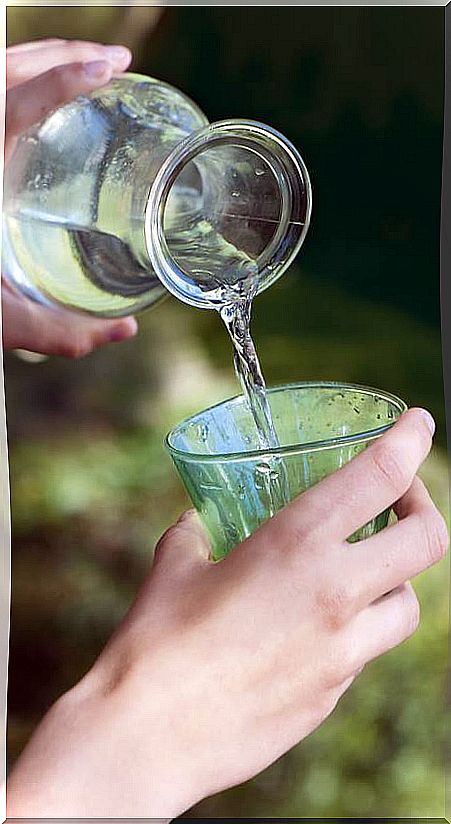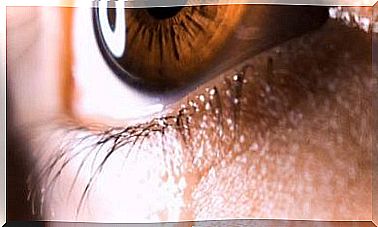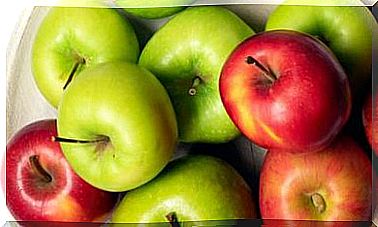Why Is Water The Best Drink?
Water is absolutely necessary in the body to perform many functions and to keep organs in good condition. Find out what it does for your health.

Hydration is still a concept that is more familiar to us when it comes to the skin than to the entire body. However, it is an important aspect of health.
Water is essential for the function of physiological systems and drinking it in the right quantity, frequency and quality can prevent the development of many common or serious disorders.
Tiredness, hypertension, digestive discomfort, eczema or difficulties concentrating, among other problems, can be related to insufficient hydration.
But is it enough to drink any liquid to hydrate yourself? Are there types of water that are more hydrating than others? Does diet play a role in hydration? The answers to these and other questions can promote a leap forward in everyday health care.
Water is the land of life
There is a tendency to believe that what cannot be touched or seen does not exist or is unimportant. The more solid a thing is, the more real it seems to us. It happens to us with our own body. We believe that we are the skin, the bones or the organs. It is difficult for us to understand that we are above all water in motion, that this is the terrain where the chemical reactions necessary for life take place.
Cells can only survive when they have enough water in and around them. That is why the body is equipped with an incredible water management system that controls the entry and exit of liquid, and which ensures that any deficiency is quickly compensated.
There are various degrees of dehydration
In theory, severe dehydration begins when weight loss due to lack of water reaches 10% of body weight. This figure is reached after three days without eating or drinking anything. After six days, when the drop reaches 20%, death occurs. These are the extreme cases that we associate with journeys through the desert or heat stroke.
But sports medicine has discovered that a slight lack of water hinders physiological processes and in the medium or long term favors premature aging and the development of diseases. A deficiency of only 1% causes a decrease in physical performance of 10%.
For a person weighing 70 kg, this represents a lack of 700 ml of water, an amount equivalent to three glasses – they can be lost in an hour of intense physical exercise at an ambient temperature of 28 ºC. That is why coaches make sure that athletes continually regain fluids.
But while the effect of mild dehydration on physical performance has been further investigated, it is also known to affect intellectual abilities, which is not surprising given that the brain is the most “watery” organ of all.
The functions of water in the body
Water is so important because it performs so many functions. When it is missing inside or outside the cells, physiological processes are hindered. The consequences can be summarized in two major disorders.
- The first is that there are failures in the functioning of the organs and systems of the body. This is because enzymes cannot act effectively on nutrients and other substances because the medium is too thick or concentrated. Consequently, chemical reactions do not occur properly.
- The other disorder is autointoxication, as the metabolic waste products that cells continually produce cannot be eliminated.
The body is made up of 70% water and is able to recycle it continuously. For example, each day, the digestive system secretes and recycles no less than 7 liters of digestive juices, at an approximate rate of:
- 1 liter of saliva
- 1.5 liters of gastric juices
- 0.75 liters of bile
- 3 liters of intestinal juices
The water necessary for the synthesis of digestive juices comes from the blood and after fulfilling its function it is easily reabsorbed through the mucous membranes of the small intestine, which are covered with very fine blood capillaries.
Drinking water, either as a drink or as part of food, is therefore the main route of entry of water into the body. The absorption capacity of the intestine is unlimited, so you can drink practically as much water as you want as long as the person is healthy. After digestion, only about 120 ml (one cup) is eliminated with the faeces.
Did you know that the body is capable of producing water?
The body is even capable of producing water through the metabolism of fats, carbohydrates and proteins when it transforms them into energy. This chemical transformation generates as waste carbon dioxide –which is expelled by the lungs– and water in an approximate quantity of 300 ml per day.
This creation of water is a “technical miracle” that scientists can only reproduce in the laboratory by consuming enormous amounts of energy. Instead, in the body, this process releases energy that serves to maintain body temperature.









